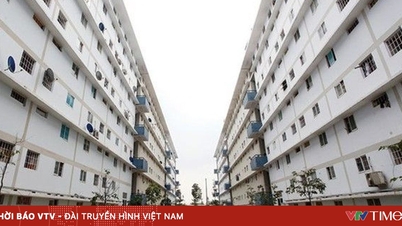
Increase family deduction by more than 40%
In the draft Resolution on adjusting the family deduction level of the National Assembly Standing Committee sent to the Ministry of Justice for appraisal, the Ministry of Finance proposed to increase the deduction level for taxpayers from 11 million VND/month to about 15.5 million VND/month (an increase of about 40.9% compared to the current level). Along with that, the deduction level for each dependent increased from 4.4 million VND/month to about 6.2 million VND/month.
According to current regulations, the deduction for taxpayers is 11 million VND/month (132 million VND/year); the deduction for each dependent is 4.4 million VND/month. This level is applied from July 2020.
Thus, the new family deduction level proposed by the Ministry of Finance increases by about 40% compared to the current level.
With the new proposal, according to the Ministry of Finance, people with salary and wage income of 15 million VND per month do not have to pay personal income tax after deducting social insurance, health insurance , and unemployment insurance. If the income is 20 million VND, the tax payable is about 120,000 VND/month.
In case of having 1 dependent, an individual with income of 25 million VND will pay 33,750 VND in tax; and with income of 35 million VND, the tax rate is 265,000 VND. If there are additional allowances, subsidies, or participation in voluntary pension insurance, the tax payable will be lower, or even 0.
When this proposed reduction is applied, most taxpayers in Tier 1 will move to zero tax (accounting for 95% of current Tier 1 taxpayers). At the same time, a portion of individuals in Tier 2 will move to Tier 1 or zero tax. Similarly, those in the remaining tax brackets will all have their personal income tax payable reduced.
It is expected that the budget revenue from personal income tax will be about 84,477 billion VND, a decrease of 21,000 billion VND per year compared to the current level. The number of people still having to pay tax is 2.21 million people, a decrease of 2.18 million people (49.66%) due to the change from level 1 to non-taxable status.
The Draft Resolution of the National Assembly Standing Committee will be considered and, if approved, will apply to the 2026 tax period.
The increase is not proportional?
Although it has been proposed to increase the deduction by more than 40% compared to the current level, many opinions say that the deduction level should be raised higher. Because the level of 15.5 million VND does not fully reflect the actual income and living expenses of taxpayers at the present time.

Although it has been proposed to increase by more than 40% compared to the current level, many opinions say that the deduction level should be raised higher.
The new school year has come, and Mr. Vu Hong Thai and his wife (Cau Giay Ward, Hanoi) are preparing to buy books, uniforms, and school supplies for their children. Every month, the basic expenses for education and food also cost more than ten million VND. That is not to mention the times when the children are sick. With the pressure of spending in Hanoi, the couple has to save every penny to have a small savings to prepare for future events.
According to experts, the proposal of the Ministry of Finance still does not fully reflect the actual income and living expenses of wage earners. Currently, low-income people are allowed to buy social housing if their monthly income does not exceed 15 million VND for single people and 30 million VND for couples. Thus, the low-income threshold is already at 15 million VND/month, so the family deduction level must be raised even higher.
“The target for low-income people to buy a house is already 15 million. With the current living standards and prices, 15.5 million or 16 million is still low. We have to consider the consumption needs of the people. The structure of consumer goods is now different from 10 years ago, so if it is higher, it will be better for everyone,” said Mr. Nguyen Van Phung - Member of the Executive Committee of the Vietnam Business Law Association (VBLA).
Regarding the proposal to increase the family deduction level, there is a suggestion to increase it to 17.3 million VND for taxpayers and 6.9 million VND for dependents. Explaining this proposal, in 2020, when the current deduction level was issued, the basic salary was 1.49 million VND per month. Up to now, the basic salary is 2.34 million VND, an increase of more than 57%. Therefore, the family deduction level also needs to increase accordingly.
No distinction between urban and rural areas
In addition, many opinions suggest that it is necessary to increase the family deduction when calculating personal income tax for people living in large cities (Hanoi, Ho Chi Minh City, etc.). Specifically, there is a proposal that localities that are not class I cities should apply a deduction of 15.5 million VND/month for taxpayers and 6.2 million VND/month for each dependent. In class I cities (Hanoi, Ho Chi Minh City, Da Nang, etc.), the deduction should be higher than 20%.
Regarding this issue, the Ministry of Finance said that, in essence, the regulation on deductions before calculating tax ensures the principle that individuals need to have a certain level of income to meet essential needs. Therefore, income above this threshold must pay tax.
The application of deductions also aims to exclude low-income earners from paying personal income tax. And the family deduction level for taxpayers and their dependents is a specific level according to the general level of society, regardless of high or low income earners, with different consumption needs and living in different areas.
It is inappropriate to differentiate between urban and rural family deductions, which will invisibly impose higher taxes on people with lower incomes in more difficult areas.
In addition, determining the family deduction level needs to be based on many factors, in which the regional minimum wage is only a reference basis for determination.
“If we regulate family deductions by region, there will be limitations and difficulties in implementation. We see that within a province or city, there are different areas with different living costs. So, if we regulate family deductions by region, each area will be very different,” said Deputy Minister of Finance Nguyen Duc Chi.
Include medical and educational expenses in family deductions
Regarding the method of calculating family deductions, in the draft Law on Personal Income Tax (replacement), for the first time, the Ministry of Finance mentioned redefining the method of calculating family deductions, in which medical and educational expenses are taken into consideration. Specifically, according to the draft, the expenses for medical, educational and training expenses of taxpayers and their dependents are deducted from pre-tax income at the rate prescribed by the Government.
Including medical and educational expenses in family deductions with full invoices and documents is considered to reduce the spending burden for taxpayers.
Regarding this issue, Ms. Nguyen Thi Cuc - President of the Vietnam Tax Consulting Association - said that each country has a different way of calculating the family deduction level. Some countries will set the family deduction level at the lowest level (average income) and then add the cost of health care, education, rent, etc.
Some countries will not separate the family deduction, instead will have a specific level (Vietnam is applying). According to Ms. Cuc, it is necessary to study separating these parts to ensure equality because with the same income, people with children going to school will have to spend more.
Raising the family deduction level is appropriate to the context of rising living costs, contributing to reducing the burden on wage earners, creating financial space for households, thereby stimulating consumption and promoting growth.
Source: https://vtv.vn/nang-muc-giam-tru-gia-canh-het-canh-that-lung-buoc-bung-van-phai-dong-thue-100250929213438187.htm




































![[Photo] General Secretary To Lam and National Assembly Chairman Tran Thanh Man attend the 80th Anniversary of the Traditional Day of the Vietnamese Inspection Sector](https://vphoto.vietnam.vn/thumb/1200x675/vietnam/resource/IMAGE/2025/11/17/1763356362984_a2-bnd-7940-3561-jpg.webp)










































































Comment (0)